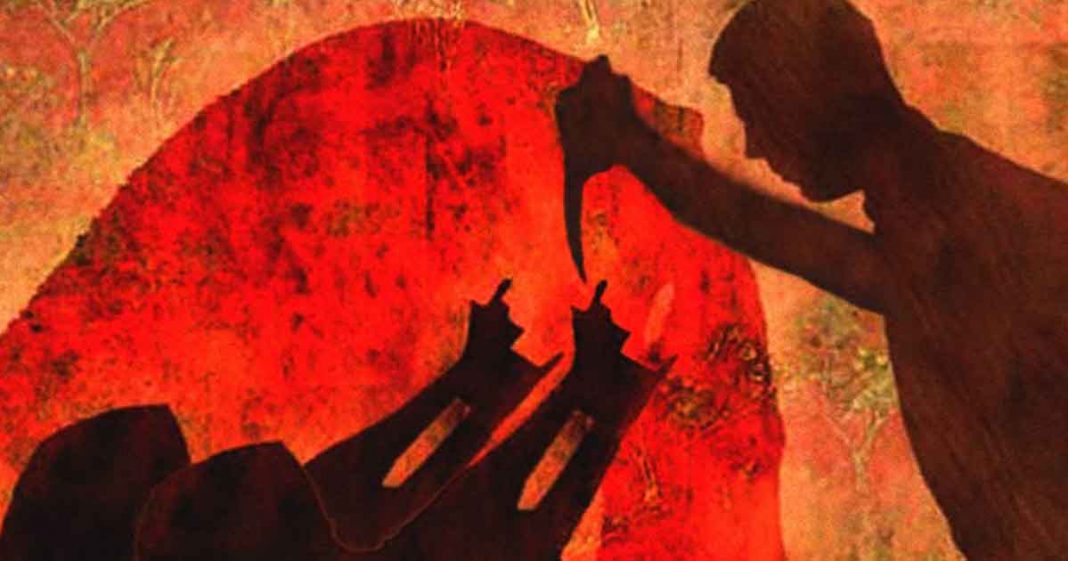Six people were killed and 12 were left injured in a violent clash in Shikarpur District on Thursday in what police described as a dispute arising over a Karo Kari incident.
The clash took place among two groups of the Jatoi clan in the limits of the Rustam Police Station. As tensions flared, the two groups traded fire, leaving six people dead and a dozen injured.
The gunfire continued for a long time, causing fear and panic in the area. After a while, police intervened to put an end to the violence. SSP Shikarpur Kamran Nawaz said the situation is now under control and that police have arrived in the area.
He said the injured have been shifted to the Lakhi Ghulam Shah, Khanpur and Shikarpur hospitals for treatment.
What is honor killing?
Honor killing is a socially accepted method to restore lost honor in rural societies. Although there have been several campaigns, legislations and public seminars in the country to protect women who “fall in love or wish to marry the man of their choice” yet the number of cases is persistently on the rise.
According to an annual report, as many as 108 women fell victim to ‘honour killings’ in Sindh over the past year. The report, compiled by the police, recorded statistics from January 31, 2019 to January 30, 2020. According to the report, 126 people, who were suspected of being involved in ‘honour killings’, had been arrested. Challans of 81 cases pertaining to ‘honour killings’ were presented in courts while 32 are still being investigated. The courts are hearing 73 cases of the crime, while three have been thrown out.
Over the same period, 132 women were murdered for different reasons, the report said, adding that 174 suspects had been arrested. Police had presented challans in 87 of the cases, while 42 were still under investigation. In six cases, police were unable to find any evidence, the report said.
Three cases of acid attacks on women were registered with the police, in which two suspects had been arrested. One case is still being investigated while the other two are being heard by the court.
Read more: One in every three women in Punjab suffered violence: UNFPA
Furthermore, 1,158 cases of kidnapping of girls were registered with the police, out of which 249 were closed after it was found that the women had married of their own free will. Police arrested 550 suspects and 358 cases are being heard by courts.
Why Karo Kari?
Sujay Patel and Amin Ahmed Muhammad Gadit in an article titled Karo-Kari: a form of honor killing in Pakistan noted that “although legally proscribed, socio-cultural factors and gender role expectations have given legitimacy to Karo-Kari within some tribal communities.”
In an ethnographic research titled Karo-Kari- The Murder of Honor in Sindh Pakistan: An Ethnographic Study conducted in Jacobabad in 2013, a group of researchers came up with some alarming conclusions. They found that “honor murders were not solely driven by customs and traditions, but also by a feudal culture, male-dominated social structures, the complicit role of state institutions and law enforcement agencies and a web of vested interests”.
GVS approached Ms. Asma Yunus, Assistant Professor of Sociology at the University of Sargodha, and asked her about the context in which Karo-Kari takes place. She thinks that, “Karo Kari is driven by a complex interplay of factors like patriarchy, feudal culture, complicit role of the state institutions and law enforcement agencies, and a web of vested sociopolitical interests”. While pointing out the role of education to maintain the status quo, Ms. Asma says “our social structure especially educational institutes are highly dominated by patriarchy and every component of education, from the syllabus to the academic environment, corresponds with the old age customs and traditions of patriarchy”.
Read more: Domestic violence, political participation: How can Pakistan protect its women?
In contemporary rural Sindh, argues G-M Pitafi, Lecturer at the University of Management and Technology, Karo-Kari has become a tool for economic exploitation of the rival. “Tribes use females from economically underprivileged families to target their rivals. The one who is blamed for having an illicit relationship with a woman has to pay money and immediately leave the area,” he said.
In some cases, it goes out of control and leads to the killing of both man and woman, he added. Local administration along with leaders of the tribes is, argues Mr. Pitafi, a part of the entire process. Therefore, these cases are on the rise.














